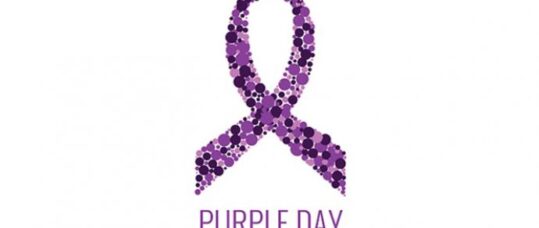Blog: Purple Day 2017 – the need for specialist nurses for young people with epilepsy

Yesterday marked Purple Day (Sunday 26 March) – an international effort to raise awareness of epilepsy. Carol Long, CEO of charity Young Epilepsy explains why it’s vital that every child and young person with the neurological condition should have access to a specialist nurse
Related Article: Government expects 2025/26 pay awards to be passed on to practice nurses
Epilepsy affects 112,000 children and young people in the UK and is the most common serious neurological condition in childhood. On average there is one child with epilepsy in every primary school and five in every secondary school.
Epilepsy has a profound and wide-ranging impact across different areas of young people’s lives. There are more than 40 types of epilepsy and according to our research, 95% of children experience significant difficulties in cognition or behaviour.[1] Often, these associated difficulties are overlooked due to the pressing medical need to manage seizures.
With this in mind, there is a continuing demand for epilepsy specialist nurses across the country who can be a source of support for young people. The National Institute for Health and Care Excellence (NICE) has been clear that all children with epilepsy should have access to a specialist nurse who they can contact when they need to. Alarmingly, though, nearly half of children with epilepsy in England had not received a referral to an epilepsy nurse one year after diagnosis.[2] Meanwhile, a third [3] of epilepsy units don’t have a specialist nurse at all.
Epilepsy specialist nurses provide support, training and information not only to children and their families but also to other professionals involved in that child’s education, welfare and wellbeing. Research has shown that these roles are good value for money and that they can reduce consultants’ workload. In addition, having a specialist nurse can reduce emergency hospital admissions for people with epilepsy.[4]
Related Article: Nurses must be ‘recognised and rewarded’ to say in profession, says Streeting
Young Epilepsy research shows that many young people find it difficult to access an appropriate healthcare professional. One young person explained that she did not have a specialist nurse until sixth form. ‘I could really have used one in the run-up to my GCSEs, as they could have helped me deal with problems at school’.[5] Young people told us that being able to contact a professional such as an epilepsy nurse had a positive impact across different areas of their lives.
Epilepsy is a neurological condition that needs to be taken seriously by commissioners. Young Epilepsy will be working with others to campaign for greater access to specialist nurses for children and young people whose lives are affected by epilepsy.
Related Article: Investigations into whistleblowing at NMC delayed and recommissioned
References:
- Young Epilepsy (2014) Identification of educational problems in childhood epilepsy: The Children with Epilepsy in Sussex Schools (CHESS) Study
- 46%, RCPCH (2014) Epilepsy12: National report, round 2
- 33%, Ibid.
- Epilepsy Action (2010) Best care: The value of epilepsy specialist nurses
- Young Epilepsy (2015) Improving epilepsy care for children and young people: an integrated approach

See how our symptom tool can help you make better sense of patient presentations
Click here to search a symptom


Sunday 26 March marked Purple Day – an international effort to raise awareness of epilepsy. Carol Long, CEO of charity Young Epilepsy explains why it’s vital that every child and young person with the neurological condition should have access to a specialist nurse.



